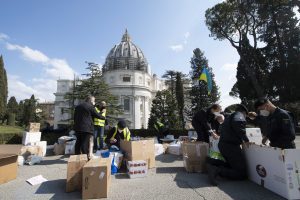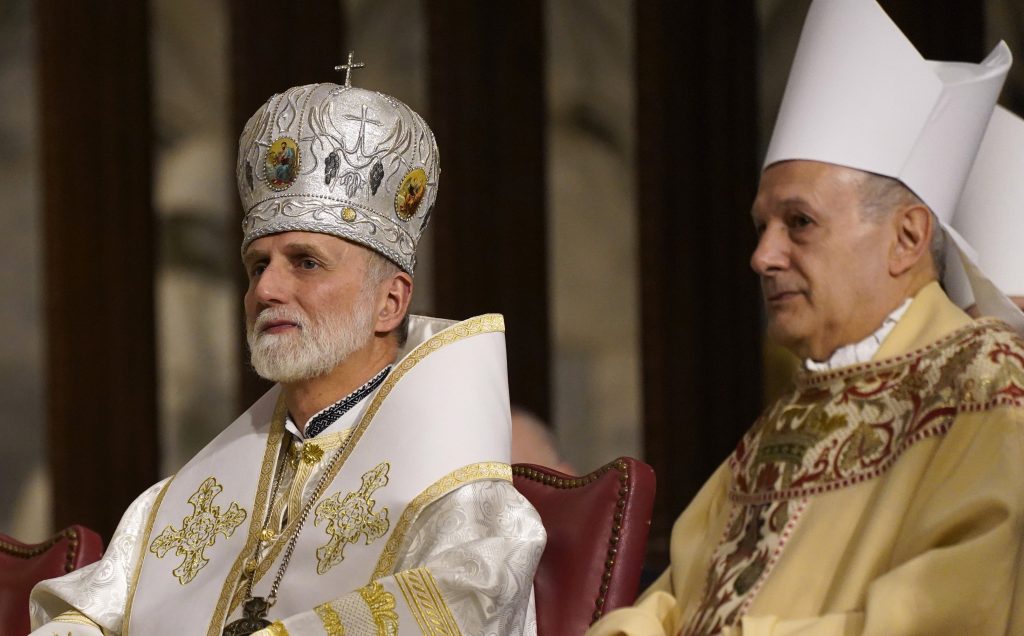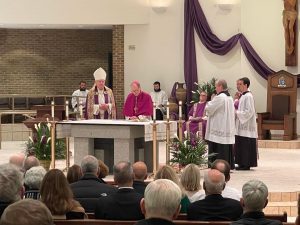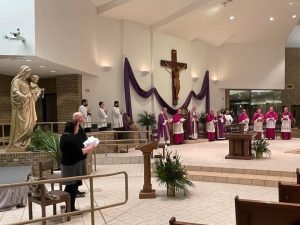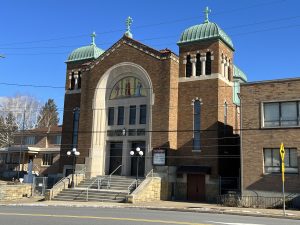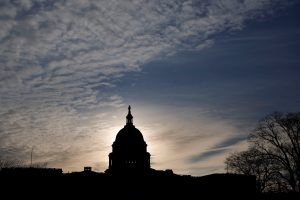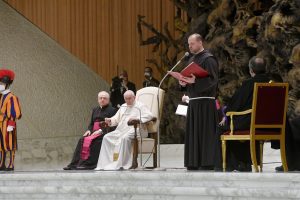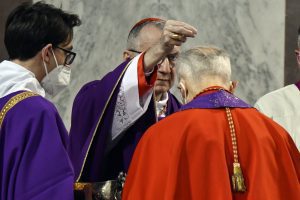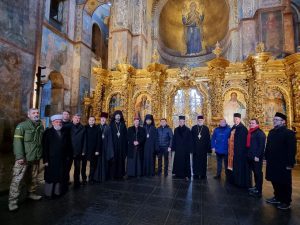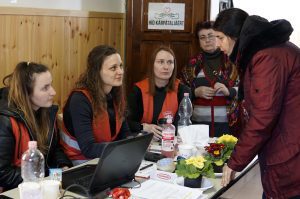
BARABÁS, Hungary (CNS) – As millions of Ukrainian refugees continue to flee the ongoing violence of Russian aggression, many have found some comfort in neighboring Hungary thanks to the efforts of Caritas.
Arriving in the border town of Barabás, refugees are immediately taken to the charitable organization’s makeshift refugee center, where they are given shelter, a hot meal and much needed rest after a harrowing journey.
In general, “we are hosting between 300-400 people” daily since the start of the war, said Balint Vadasz, Caritas Hungary’s head of emergency response.
Since the Russian attack began at the end of February, some 2,000 refugees have crossed the border into Barabás. According to the U.N. Refugee Agency, as of March 9, more than 214,000 people have fled Ukraine to Hungary.
“Here we are trying to help them to move forward, to plan their future and, if necessary, to transport them to the central train station, where they can travel for free in Hungary,” Vadasz told Catholic News Service March 10.
At the refugee center, new arrivals laid down and rested on cots set up in a hall for them. Nearby, tables were laden with sandwiches, beverages, cookies as well as toys and plush animals for the kids.
The walls are decorated with dozens of pictures drawn by the many children who have passed through the refugee center. The drawings feature butterflies, flowers and families holding hands. Yet, many of the pictures also revealed the children’s longing for their homeland, shown in drawings of hearts colored with the blue and yellow of the Ukrainian flag.
Some of the 62 refugees that arrived the morning of March 10 were napping, exhausted from their ordeal while children talked excitedly as they snacked on sweets, drew in coloring books or played games.
Their parents, however, looked on with concern and uncertainty about the future. A young father stared blankly at his son playing with a toy while a mother at the other end of the hall looked through her phone as her baby slept peacefully on a cot.
“It’s really hard to see these people, to see that pain,” Bettina Vig, a Caritas volunteer, told CNS. “But I think they still don’t yet realize their situation.”
Vig said she hoped Russia’s attack on Ukraine would “stop as soon as possible and that they realize they are wasting lives.”
Another volunteer, Ditta Krajcsovicz, recalled one woman, who arrived with her small son at the center, and said she had had only had three hours to pack their lives in a small backpack before Russian bombs started to fall.
“It was really hard to see how they were like,” Krajcsovicz told CNS. “They had no sadness in their faces but still, you could see it in their eyes; they don’t know what is happening or where they would go. They just had three hours to pack one backpack. That was pretty tough for me” to see.
Gasz Mihaly, who began volunteering a week earlier and helps in between his university studies, said he was inspired by the spirit of service in his family, many of whom are doctors.
On his first day at the refugee center, he received a Facebook message from a Ukrainian man living in the United Arab Emirates who wanted to know if Mihaly could get him a ride to one of the towns along the Hungary-Ukraine border.
The man, he said, planned to fly to Hungary and enter Ukraine to fight against the Russians.
“That really touched me. He had a safe and beautiful life in the Emirates and came back to fight in the war. I thought that if I were in his position, I wouldn’t be able to do that.”
Yet for Mihaly, the heart-wrenching stories of some of the people fleeing to Hungary left a lasting impression.
“There was a guy who came by, dressed in a tie and a very beautiful suit,” he recalled. “He came up to me, very shy, and said, ‘I’m sorry, I don’t have money to go to Budapest. Can you take me to the train station?'”
Others, Mihaly said, arrived in Barabás with no hope of ever returning to their homeland.
“There was someone who came here today and said that he would not return to Ukraine because all that he had there was destroyed by the bombings. So now, he has to start a new life and he is over 50 years old,” he said.
Despite the sorrow and despair he continues to witness at the refugee center, Mihaly told CNS that he still holds onto hope for peace in Ukraine.
“I really think that the war will end soon and everyone who wants can go back,” he said. “And they will have the opportunity and the help of the West to rebuild their homes and rebuild their society.”

